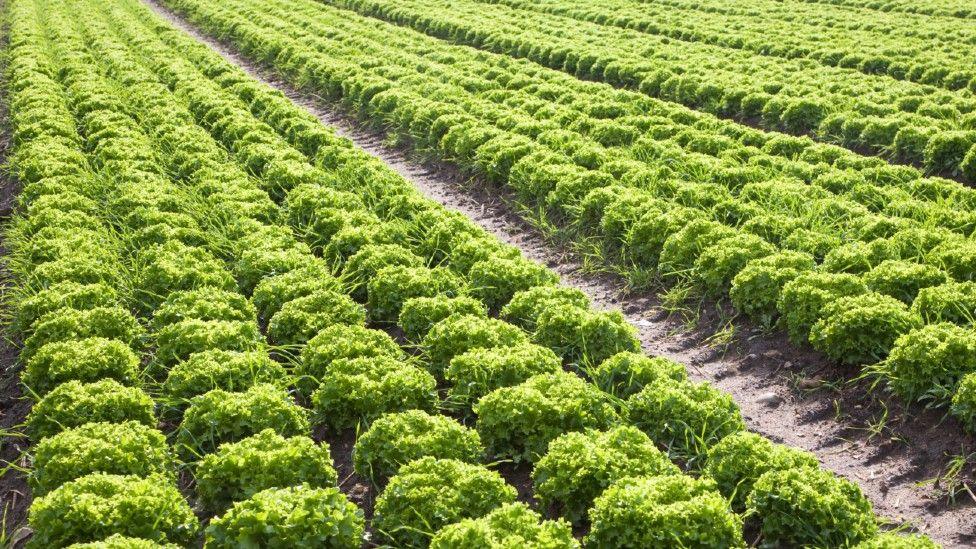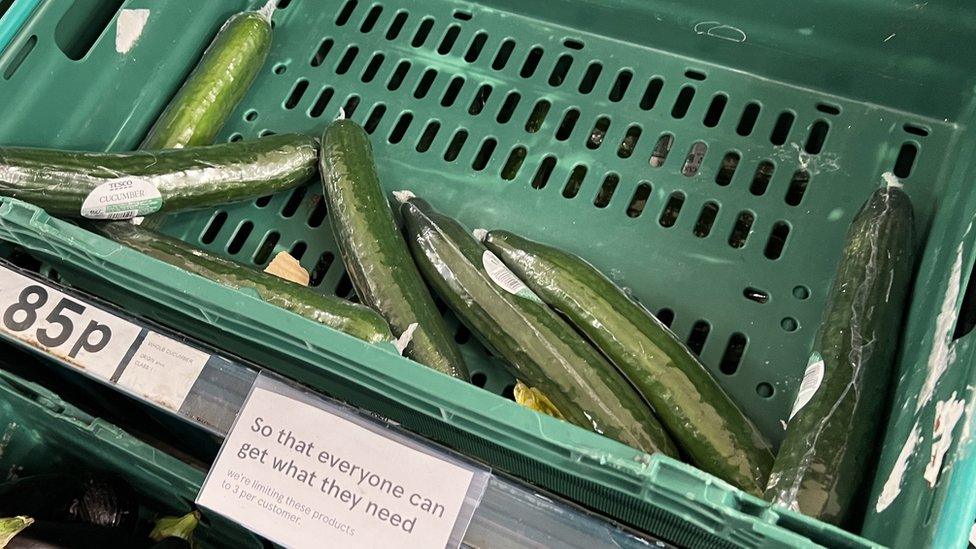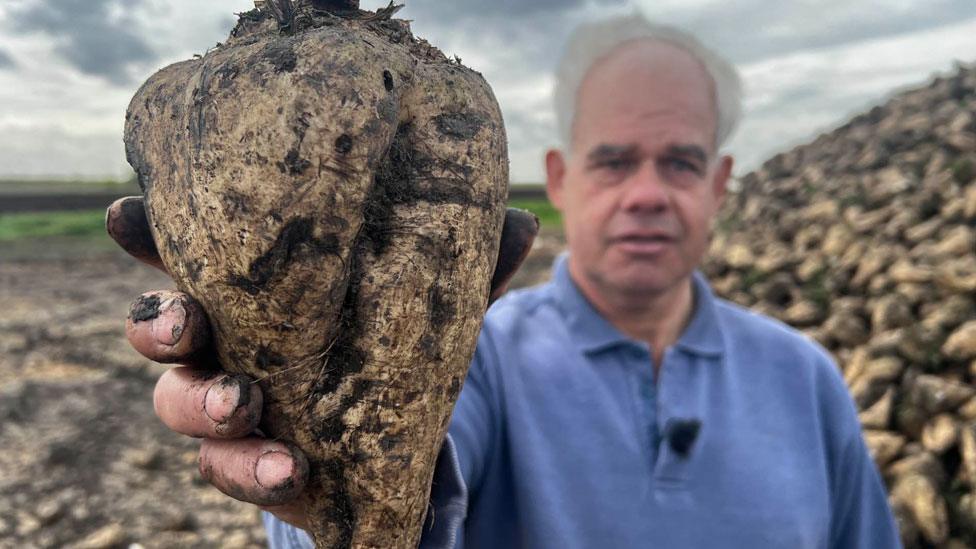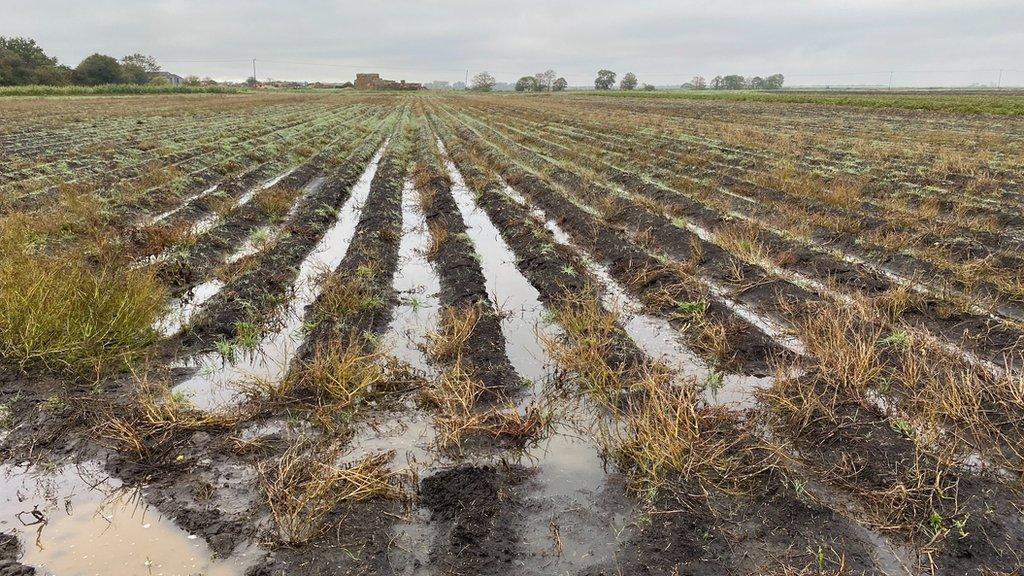Salad producer says wet weather is a 'challenge'

Peter Sargeant said the wet conditions had made it difficult to plant crops
- Published
A salad producer has described how the wettest conditions for nearly a quarter of a century has caused challenges for growers.
Peter Sargeant, the managing director of the Norfolk site of G's Fresh, said the wet conditions had made it difficult to plant the crops and had impacted demand this summer.
G's Fresh was started, external near Ely, Cambridgeshire, in 1952 by Guy Shropshire and it now has production sites in Norfolk, Suffolk, Cambridgeshire, Yorkshire, Kent, West Sussex and the West Midlands.
Mr Sargeant said: "The challenges around weather and its impact and the extremities we're seeing, gives us more of a challenge."
G's Fresh starts to plant lettuce and celery at the end of February and the beginning of March. Alongside those products, the company also grows, external mushrooms, melons, tomatoes, beetroot, asparagus, onions, garlic, spring onions and pumpkins.
Speaking to the Farming Today programme on Radio 4, Mr Sargeant said the company has faced numerous challenges due to the wetness of the land.
He said: "It has been really challenging in terms of getting those crops in the ground every week... I would say the real challenge has been not having the weather through May and June, which I would say accounts for about 50% of our summer sales."
'Risks'
Mr Sargeant said salad sales usually "go up massively" when the weather improves.
He said: "Whilst sales have held up surprisingly well, we haven't seen the real peaks we would expect to see at this time of year driven by the weather."
William Gribbon the manager of Heygate Farms in Swaffham, Norfolk, said farmland was left significantly saturated last year with more than 41 inches (104cm) of rainfall recorded locally.
He said: "It's costing us more money every year to produce a crop of potatoes and we are reliant on the weather to do that as well.
With the cost rising of fertilizer and chemical costs too, he said there was now "a lot of risk" in growing the crop.
BBC Sounds
Salad sales down on Farming Today
- Attribution
Follow Norfolk news on Facebook, external, Instagram, external and X, external. Got a story? Email eastofenglandnews@bbc.co.uk, external or WhatsApp us on 0800 169 1830
Related topics
- Published24 February 2023

- Published11 April 2024

- Published9 November 2023
